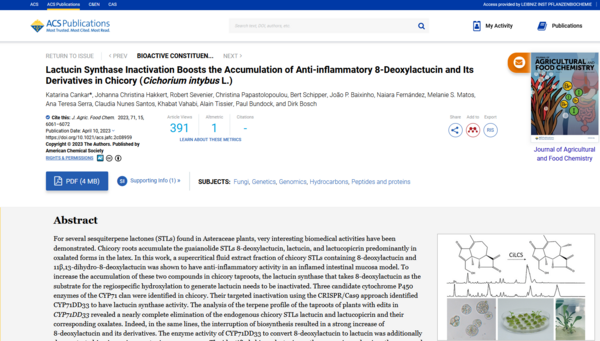Anti-inflammatory bitter substance from chicory.
The root chicory (Cichorium intybus L.) was already used in the Middle Ages to treat all kinds of digestive discomforts. In particular, the bitter substances contained in the latex of its root have a variety of pharmaceutical effects, which are currently the focus of intense research interest. These bitter substances include lactucin, 8-deoxylactucin, lactucopicrin and their oxalates, all of which belong to the sesquiterpene lactone group of substances. In a team with partners from the Netherlands and Portugal, IPB scientists have now demonstrated in cell cultures that 8-deoxylactucin in particular has a strong anti-inflammatory effect on inflamed intestinal mucosa cells. In addition, the experts were able to identify the specific cytochrome P450 oxidase that converts 8-deoxylactucin into lactucin. The enzyme, CYP71DD33, was named chicory lactucin synthase and is considered the first lactucin synthase found in plants. Targeted inactivation of lactucin synthase with CRISPR/Cas9 resulted in a strong accumulation of 8-deoxylactucin in chicory roots. The study contributes to further elucidation of the biosynthesis of these pharmaceutically interesting sesquiterpene lactones in chicory. It also demonstrates the potential of genome editing techniques in this plant, which could be used in the future to produce bioactive compounds such as the anti-inflammatory 8-deoxylactucin.



